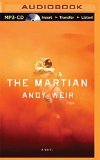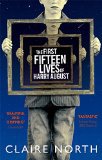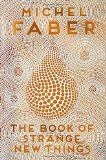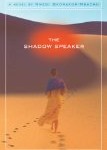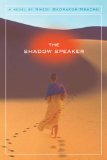Five words from the blurb: Mars, astronaut, alone, survival, rescue
The Martian was on the “Best of 2014” list of many bloggers I trust, so I bought the audio version. I’m so pleased that I did as it is one of the most entertaining stories I’ve ever listened to. It is basically a survival story, but combines the tension of a man living in daily fear for his life with the mundane reality of being an astronaut for an extended period of time. It also shows how complex science can solve problems and combines this with well researched technical information about Mars. I was gripped throughout and found myself laughing and amazed in equal measure.
Mark Watney is one of the first astronauts to visit Mars, but just hours after touching down on the surface there is an accident and the rest of the crew evacuate, sure that Watney has perished. He regains consciousness and discovers that he is alone on Mars. He must use every ounce of his training and intelligence to find a way to survive until he can be rescued. The majority of the book is made up of Mark Watney’s daily log entries where he records everything that happens each day, including his thoughts and frustrations. Some people might find the language a bit harsh, but I thought it was appropriate and realistic given the situation he was placed in:
Log Entry: SOL 118
My conversation with NASA about the water reclaimer was boring and riddled with technical details. So I’ll paraphrase for you:
Me: “This is obviously a clog. How about I take it apart and check the internal tubing?”
NASA: (After about 5 hours of deliberation) “No. You’ll fuck it up and die.”
So I took it apart.
Watney is one of the best characters I’ve ever come across. His flaws and strengths were given equal attention and by the end of the book I felt as though I knew him. I loved his attitude to life and think many people could learn from his reactions to adversity. The book also raised interesting questions about how much one life is worth and whether we should ever gamble with the lives of others in order to save someone else.
The Martian works particularly well on audio. R.C. Bray is the perfect narrator – making the wry humor spring to life, but maintaining the tension when serious problems arise.
Overall I can’t fault this book. I was transported into the mind of an astronaut whilst being thoroughly entertained. I learnt many new things and admired the way technical information was integrated into the gripping plot. It’s the best book I’ve read in a long time.
Highly recommended.

.
